#persuasion 1817
Text
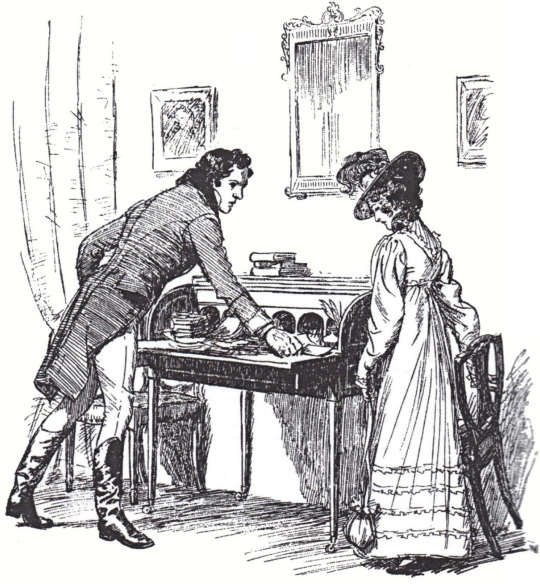
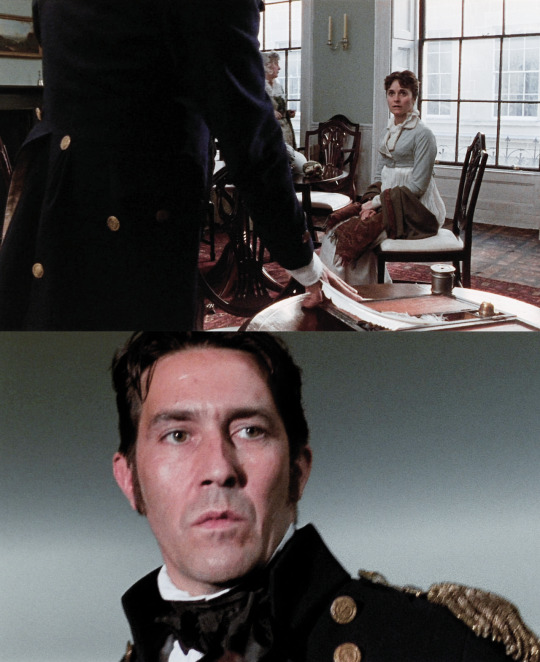
He drew out a letter and placed it before Anne.
Persuasion by Jane Austen (illustration by Hugh Thomson) /
Persuasion (1995) dir. Roger Michell
#persuasion#persuasion 1995#jane austen#anne elliot#captain wentworth#frederick wentworth#amanda root#ciaran hinds#persuasion book#persuasion 1817#janeaustenedit#filmedit#period drama#perioddramaedit#persuasionedit#jane austen parallels#book illustration#parallels#picspam#my edit
154 notes
·
View notes
Text


#persuasion#jane Austen#1817#19th century#virginia woolf#quotes#women in literature#international womens day
151 notes
·
View notes
Quote
When the evening was over, Anne could not but be amused at the idea of her coming to Lyme, to preach patience and resignation to a young man whom she had never seen before; nor could she help fearing, on more serious reflection, that, like many other great moralists and preachers, she had been eloquent on a point in which her own conduct would ill bear examination.
Jane Austen, Persuasion
103 notes
·
View notes
Photo
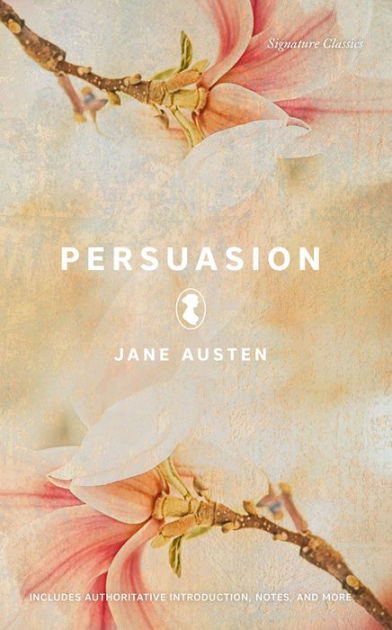
Title: Persuasion
Author: Jane Austen
Series or standalone: standalone
Publication year: 1817
Genres: fiction, classics, romance, historical fiction
Blurb: At 27 years old, Anne Elliot is no longer young, and has few romantic prospects. Eight years earlier, she had been persuaded by her friend Lady Russell to break off her engagement to Frederick Wentworth, a handsome naval captain with neither fortune nor rank. She is haunted by her choice for years...until, unexpectedly, Wentworth returns. His circumstances have improved greatly, but is it too late for Anne?
4 notes
·
View notes
Text
aaaaaaaaaaaaaaaaaa
2 notes
·
View notes
Text
I think the fundamental issue with Anne Elliot’s character in Persuasion is that some people (eg. idiots writing a screenplay for Netflix because an algorithm told them to) think the fact that Anne in the novel is passive, meek, and self-effacing, is only because she’s a woman in 1817 who is oh so oppressed! Which is like, completely ignorant of the fact that for the time period, she occupies a place of enormous privilege. She’s the white daughter of a wealthy white land-owning male, and while she can’t vote or work, she’s still pretty high up on that regency hierarchy. There’s no reason to conclude that all, or even most, of her personality is due to being a woman in a patriarchal society, and not just her natural disposition.
This is obvious if you’ve read Austen’s novels, and actually find out that plenty of women are NOT passive, meek, and self-effacing (Elizabeth Bennet, Emma Woodhouse, Lady Catherine de Bourgh, etc.). Even within Persuasion itself, there are other women who are not, like both of Anne’s sisters, Lady Russell, and Mrs. Croft. And since nearly all of Austen’s female characters occupy a similar social position, you can assume that they all face nearly identical gendered oppression. And yet somehow still ended up with distinct personalities!
Austen recognizes and admires Anne’s personality, the parts that are compassionate, kind, polite, and modest (in the sense of being unconceited, not sexually). Austen does not see these as negative traits, and neither should the reader.
But, for Austen, moderation is the key to all things, and this is a theme that crops up in a lot of her novels. The whole premise of Persuasion is that you can take even positive traits too far. Anne is a decent and unselfish person, willing to sacrifice her own comfort for others. But before the novel begins, she allows herself to be persuaded to act against her own personal inclinations, in order to please her friends and family. This causes both she and Wentworth a lot of misery, certainly much more pain and distress than would have been suffered by her friends and family if she had just married Wentworth in the first place.
What Austen is saying is that it’s fine, and even admirable, to be unassuming and selfless, if that’s your natural personality, but that you should take care to not let that natural inclination to please others interfere with your own happiness. That in some cases, doing so actually causes more suffering than just doing what is best for yourself. It’s basically a guide for women like Anne, praising them for the sweet and noble aspects in their natures, while warning them to still take care of themselves.
Turning the character into a secret girlboss who’s just living in the wrong century, completely erases this very important theme, and one that resonates even with many modern women, who despite Hollywood’s opinion on the matter, are not all snarky, confident, and assertive. There’s nothing wrong with women who are those things, but women are people, and therefore their personalities vary to a near infinite degree.
The current vogue for only allowing female characters who are quirky, sassy, and confident is as deeply sexist as the idea that only women who are demure, meek, and self-effacing are acceptable. And Austen, a woman born in 1775, never did that. She wrote female characters with a wide variety of personalities and saw the worth (and the foibles) in all of them, from Elizabeth Bennet to Anne Elliot. No two were alike, but they all had something to offer, and a voice that deserved to heard.
#text#persuasion#anne elliot#jane austen#netflix#finally watched that disaster of a persuasion adaptation and had thoughts#my words
3K notes
·
View notes
Text
That Neil Gaiman said either Aziraphale or Crowley's (unclear from his answer which) favorite Jane Austen novel is Persuasion lives rent-free in my head, because it has this GOAT second chance romance love confession:
“I can listen no longer in silence. I must speak to you by such means as are within my reach. You pierce my soul. I am half agony, half hope. Tell me not that I am too late, that such precious feelings are gone for ever. I offer myself to you again with a heart even more your own than when you almost broke it."
--Jane Austen, Persuasion, 1817
#good omens#aziracrow#ineffable husbands#jane austen quote#book quotes#persuasion#aziraphale x crowley#crowley x aziraphale
63 notes
·
View notes
Text
Men have had every advantage of us in telling their own story. Education has been theirs in so much higher a degree; the pen has been in their hands.
–Anne Elliot
Persuasion (1817)
#persuasion#jane austen#jane austen persuasion#persuasion jane austen#feminism#anne elliot#austen heroine
294 notes
·
View notes
Text
Immediately surrounding Mrs Musgrove were the little Harvilles, whom she was sedulously guarding from the tyranny of the two children from the Cottage, expressly arrived to amuse them. On one side was a table occupied by some chattering girls, cutting up silk and gold paper; and on the other were tressels and trays, bending under the weight of brawn and cold pies, where riotous boys were holding high revel; the whole completed by a roaring Christmas fire, which seemed determined to be heard, in spite of all the noise of the others. Charles and Mary also came in, of course, during their visit, and Mr Musgrove made a point of paying his respects to Lady Russell, and sat down close to her for ten minutes, talking with a very raised voice, but from the clamour of the children on his knees, generally in vain. It was a fine family-piece.
-- Persuasion, by Jane Austen (Chapter 15)*. Written in 1816, published December 20, 1817, with an 1818 copyright date.
This is Jane Austen describing a Christmas Present scene that Charles Dickens would describe as Christmas Past, in A Christmas Carol, just twenty-five years later.
And remember: in Dickens's novel, Scrooge represented the cultural norm of the day. And for a time scale in our own lives, 25 years ago was 1998.
Austen's novel centers around the end of the Napoleonic Wars, and how the influx of War Money was destined to change the structure of society. The Napoleonic Wars officially ended on November 20, 1815; there's an allusion to the signing of the peace treaty in overheard dialog at the end of the novel. Jane Austen died July 18, 1817, so it's not like she was writing about the changes in society with the advantage of hindsight.
The hindsight comes to us through Charles Dickens's later work.
It's sobering how quickly social norms can get "set in stone," especially when money and social hierarchy are in the mix.
*link goes to the Web e-text, at Project Gutenberg.
23 notes
·
View notes
Text
“She thought it was the misfortune of poetry, to be seldom safely enjoyed by those who enjoyed it completely; and that the strong feelings which alone could estimate it truly, were the feelings which ought to taste it but sparingly.”
— Jane Austen, Persuasion (1817)
65 notes
·
View notes
Photo

✨best books i read in 2022 in no particular order✨
Beautiful Country by Qian Julie Wang (2021)
This "memoir of an undocumented childhood" is a beautiful story of a family who cared for and looked after one another and of a child who had a lot of fears but was at the same time wonderfully brave and curious and determined.
My Brilliant Friend by Elena Ferrante (2011)
This is the story of Elena and Lila, two childhood friends living in a rough neighborhood on the outskirts of Napoli. We follow their story, narrated by Elena, until they become teenagers, when their paths diverge and their friendship is transformed forever.
Persuasion by Jane Austen (1817)
Persuasion tells the story of a second chance, the reawakening of love between Anne Elliot and Captain Frederick Wentworth, whom eight years earlier she had been persuaded not to marry.
Giovanni's Room by James Baldwin (1956)
This is the story of David, an american man living in Paris, living off the little money his father is willing to lend him, while his girlfriend is in Spain, On a night out he meets a young bartender named Giovanni and goes home with him.
A Swim in a Pond in the Rain by George Saunders (2021)
Paired with iconic short stories by Chekhov, Turgenev, Tolstoy, and Gogol, the seven essays in this book are intended for anyone interested in how fiction works, how the mind itself works while reading, and of how the reading and writing of stories make genuine connection possible.
Franny and Zooey by J.D. Salinger (1961)
When Franny’s emotional and spiritual doubts reach new heights, her older brother Zooey, a misanthropic former child genius, offers her consolation and brotherly advice. These two stories offer a touching snapshot of the distraught mindset of early adulthood and are full of insightful emotional observations and witty turns of phrase.
Jazz by Toni Morrison (1993)
a passionate, profound story of love and obsession that brings us back and forth in time, as a narrative is assembled from the emotions, hopes, fears, and deep realities of black urban life.
The Love Songs of W.E.B. Du Bois by Honorée Fanonne Jeffers (2021)
This is the story of Ailey and her ancestor's journey in America through centuries, from the colonial slave trade to our days. We meet Ailey when she is a child and watch her grow up, until the moment when, as a college graduate, she embarks on a journey to uncover her family's past.
Young Mungo by Douglas Stuart (2022)
Growing up in a housing estate in Glasgow, Mungo and James are born under different stars--Mungo a Protestant and James a Catholic--and they should be sworn enemies if they're to be seen as men at all. Yet against all odds, they become best friends.
Real Life by Brandon Taylor (2020)
Almost everything about Wallace is at odds with the Midwestern university town where he is working uneasily toward a biochem degree. But over the course of a weekend, a series of confrontations with colleagues, and an unexpected encounter with a straight, white classmate, conspire to fracture his defenses.
The Art of Fielding by Chad Harbach (2011)
This is the story of Henry Skrimshander who gets recruited by a small college to play baseball and quickly becomes the star of the team, and of Mike Schwartz, the baseball team captain who recruited Henry, and who doesn't know what to do with his life, as his relationship with Henry becomes more and more co-dependent.
Unlikely Animals by Annie Hartnett (2022)
Emma was set to start med school but her father got sick with a brain disease and she decided to go back home to New Hampshire. At home her dad and her mum are in a fight, her brother is just out of rehab her childhood best friend is missing and Emma’s dad started seeing ghosts.
This Side of Paradise by F. Scott Fitzgerald (1920)
Amory is a boy with family money who attends a private high school, and then Princeton and then gradually becomes disillusioned with life.
Interpreter of Maladies by Jhumpa Lahiri (1999)
Navigating between the Indian traditions they've inherited and the baffling new world, the characters in Jhumpa Lahiri's elegant, touching stories seek love beyond the barriers of culture and generations.
Fight Night by Miriam Toews (2021)
It is told in the unforgettable voice of Swiv, a nine-year-old living in Toronto with her pregnant mother, who is raising Swiv while caring for her own elderly, frail, yet extraordinarily lively mother.
Scoop by Evelyn Waugh (1938)
William Booth is a young man living in the countryside, writing for a newspaper little colums about nature, and he is sent by mistake (he has the same surname as a much cooler novelist) to the fictional country Ishmaelia to cover a war for his newspaper. Various other little mishaps ensue.
Maps of our Spectacular Bodies by Maddie Mortimer (2022)
This is the story of Lia, Harry and their daughter Iris, a beautiful loving family. Iris is a teenager and has to navigate all that comes with that while, at the same time, learning to live with the fact that her mum's cancer has come back, and doctors are telling them it's terminal.
Dracula by Bram Stoker (1897)
When Jonathan Harker visits Transylvania to help Count Dracula with the purchase of a London house, he makes a series of horrific discoveries about his client. Soon afterwards, various bizarre incidents unfold in England.
Of Mice and Men by John Steinbeck (1937)
It narrates the experiences of George Milton and Lennie Small, two displaced migrant ranch workers, who move from place to place in California in search of new job opportunities during the Great Depression in the United States.
Born a Crime by Trevor Noah (2016)
The memoir of one man’s coming-of-age, set during the twilight of apartheid and the tumultuous days of freedom that followed.
The Old Man and the Sea by Ernest Hemingway (1952)
It is the story of an epic struggle between an Santiago, an old, seasoned fisherman and his life's greatest catch of fish, after eighty-four days that he has set out to sea and every time returned empty-handed.
Mrs. Dalloway by Virginia Woolf (1925)
One day in the life of Clarissa Dalloway. She is getting ready for a party she is hosting at her house. It is also a day in the life of a young veteran, Septimus who fought in WWI and got shellshocked: his last day. The two move around London and think back to episodes of their past.
Peril at End House by Agatha Christie (1932)
Poirot is vacationing in Cornwall, meets young "Nick" Buckley and her friends. He is persuaded that someone is out to kill her. Though he aims to protect Nick, a murder happens that provokes Poirot to mount a serious investigation.
#DM FOR LINKS#i love all of these books and i would love it if you read them and then got back to me immediately#my dms are always open to talk about books <3#books#booksblr#bookblr#dark academia#sorry cringe tag but i want people to read the books i want them to read!#light academia#classic#classic literature#books and reading#books and coffee#books and literature#young mungo#beautiful country#my brilliant friend#elena ferrante#virginia woolf#agatha christie#dracula#dracula daily#the art of fielding#unlikely animals#ernest hemingway#book recs
134 notes
·
View notes
Text
Twenty-seven-year old Anne Elliot is Austen's most adult heroine. Eight years before the story proper begins, she is happily betrothed to a naval officer, Frederick Wentworth, but she precipitously breaks off the engagement when persuaded by her friend Lady Russell that such a match is unworthy. The breakup produces in Anne a deep and long-lasting regret. When later Wentworth returns from sea a rich and successful captain, he finds Anne's family on the brink of financial ruin and his own sister a tenant in Kellynch Hall, the Elliot estate. All the tension of the novel revolves around one question: Will Anne and Wentworth be reunited in their love?
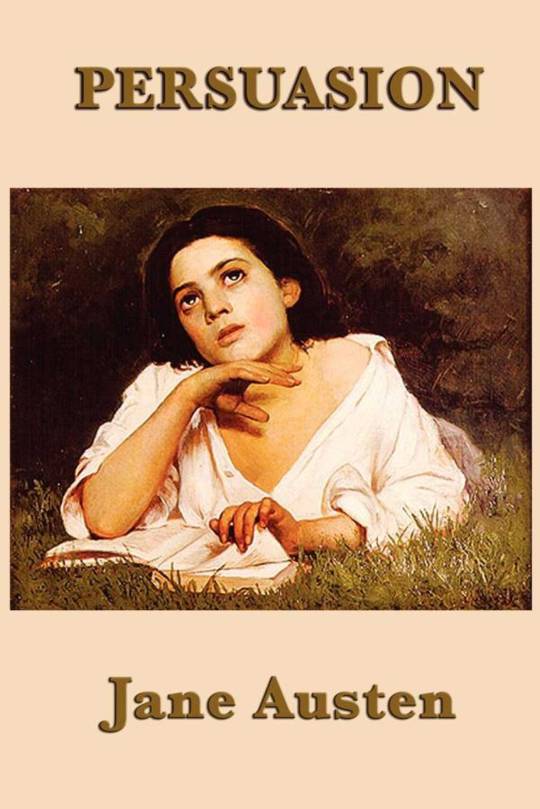
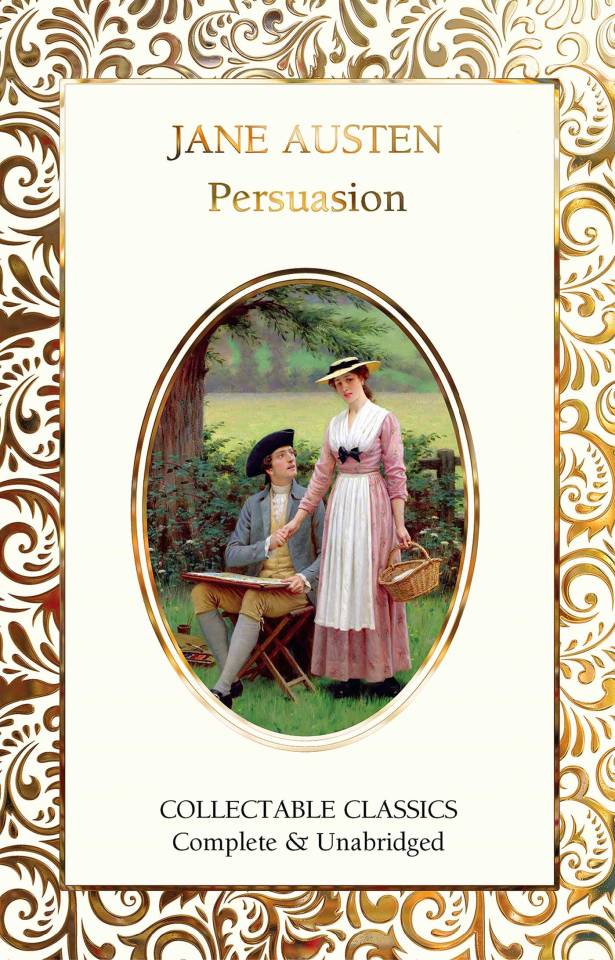
#book: persuasion#author: jane austen#genre: romance#genre: classics#genre: historical fiction#year: 1800s
11 notes
·
View notes
Text
northanger abbey is actually one of my least favorite books by austen, but it has grown on me with time. i've never quite agreed that it's a satire of gothic novels, and the more i think about it the more i wonder about austen's opinion on gothic literature. austen's books were always very precise, very realistic, even proper, and she was extremely aware of boundaries and the social reality of high class women. her books are contained, as are her heroines. but they also display an awareness of that containment, a keen understanding of the limitations placed on women of a specific social circle (high class, white).
catherine morland supposedly allows fantasy to rule over her senses, although imo the book ultimately proves her "fantasies" right. she perceived a reality for which she had no vocabulary other than what she found in her gothic books, in which patriarchal tyranny was an openly recognized threat. austen's works all seem very aware of the dangers of patriarchy and female dependency, but they discuss this in proper, contained ways. many readers barely give it much importance. certain realities can't be fully disclosed in the language women like austen were allowed to speak.
of course many gothic writers were women. perhaps 'allowed' isn't the right word. it might also not be such a gendered issue -- austen deliberately mentions both male and female writers in northanger abbey, and an important male character is an appreciative reader of the novels. so i'm not entirely sure what i'm saying here, i'm just interested in how catherine's love for gothic literature gave her a framework through which she could understand certain power dynamics. her vocabulary & perceptions are "corrected" eventually, but in fact she had always perceived the truth (perhaps clearer than any of the other characters). this somehow also relates to persuasion (both were written/published in 1817), and how the narrative rewards emotion over sense, and recognizes the limitations of a certain kind of socially acceptable "understanding" of reality.
really have no idea where i'm going with this tbh!
20 notes
·
View notes
Text
Captain Wentworth, with five-and-twenty thousand pounds, and as high in his profession as merit and activity could place him, was no longer nobody. He was now esteemed quite worthy to address the daughter of a foolish, spendthrift baronet, who had not had principle or sense enough to maintain himself in the situation in which Providence had placed him, and who could give his daughter at present but a small part of the share of ten thousand pounds which must be hers hereafter.
Jane Austen, Persuasion
10 notes
·
View notes
Text
To-do list for the weekend:
Grab a bottle of wine (or two)
Hate-watch Persuasion (2022)
Re-read Persuasion (1817)
Abandon all hope ye who enter here
84 notes
·
View notes
Text
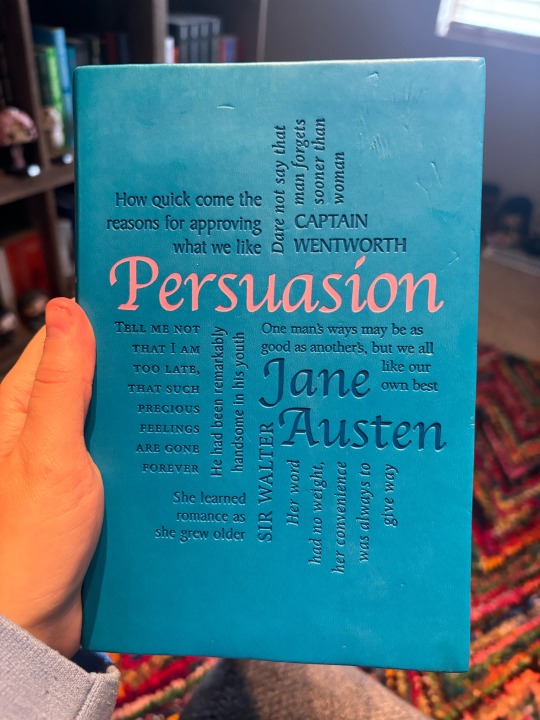
Read of Persuasion by Jane Austen (1817) (202pgs)
3 notes
·
View notes